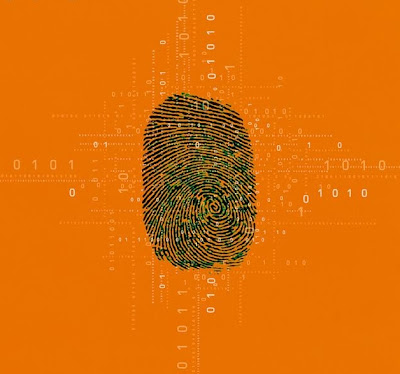 "Church Fights Da Vinci Code Novel"
"Church Fights Da Vinci Code Novel"
"Vatican Assault On DaVinci Code""Vatican Officially Denounces The DaVinci Code"
"Cardinal´s Plea: Do Not Read DaVinci Code"
Oh my Gosh, there´s a lot of noise in the media about the Catholic Church disparaging the world´s no. 1 selling novel--DaVinci Code by Dan Brown. As a matter of fact, looking at the headlines, the "disparage" verb I used is a very diplomatic term indeed... For it seems the soft spoken language that usually comes from the Catholic Church officials is anything but diplomatic. It´s quite offensive. Can anybody tell me, why did the Vatican go crazy about some mainstream novel instead of trying to tackle some really important issues the Catholic Church has been facing over the last decades? With the number of Catholics declining, financial as well as sexual abuse scandals on the rise, and the Pope presumably at his eleventh hour, I just don´t get it! Helooo! You guys are obviously trying to perform an operation on the patient using the heart bypass surgery, but guess what--the patient is dying on cancer!
De-coding DaVinci
The Da Vinci Code, by US author Dan Brown, has been a publishing sensation around the world and is still in best-seller lists. Its conspiracy theories and thriller style, in which two code-breakers try to track down the truth behind the Holy Grail, have caught the imaginations of millions. Its central claim is that the Holy Grail is really the bloodline descended from Jesus and Mary Magdalene - which the Church is supposed to have covered up, along with the female role in Christianity. Brown has previously said: "All of the art, architecture, secret rituals, secret societies, all of that is historical fact."
Vatican Lost It
"The book is everywhere. There is a very real risk that many people who read it will believe that the fables it contains are true."
"Christians should not buy or even read the best-selling thriller."
One Particularly Interesting Fact
The strongest Vatican critic of the novel, Cardinal Tarcisio Bertone, the Archbishop of Genoa, Italy, is among those seen as a likely successor to the ailing Pope John Paul II.
My Last Word
Considering the whole picture from a marketer´s point of view, this is a textbook example of how a public effort, no matter how much successful or legitimate, to take on something that is merely commercial (in this case a book), is going to rather burnish the sales and overall popularity/hype that is already quite significant. For me, Dan Brown is a genius. Completely fabricated or not, the novel proved one thing--that the Catholic Church is far from its own resurrection.
 Come on, we all know this phrase, we all use this phrase. But guess what--it sucks. The phrase per se is flawed, so why should we use it? "I think, therefore I am" is possibly the single best-known philosophical statement and is attributed to René Descartes. Cogito ergo sum (in Latin) is a translation of Descartes' original French statement, Je pense, donc, je suis.
Come on, we all know this phrase, we all use this phrase. But guess what--it sucks. The phrase per se is flawed, so why should we use it? "I think, therefore I am" is possibly the single best-known philosophical statement and is attributed to René Descartes. Cogito ergo sum (in Latin) is a translation of Descartes' original French statement, Je pense, donc, je suis.
Cogito ergo sum anticipates that our daily desicion-making such as what to do and why, or, particularly important in business, what to buy and why, is the consequence of a strictly rational way of thinking. This idea, brought up by Descartes in 17th century and supported by his partisans (so called continental rationalists) Leibnitz and Spinoza, is simply flawed and untrue. A dead wood indeed. Do I have to prove it? Come on! Take your time, look around yourself and think for a while...
"I think, therefore I am" somehow excludes a lot of people from belonging to homo sapiens, don´t you think so? Well I believe so ;o)
Studies of human psychology have proven people´s decision-making anything but strictly rational; all of us, as living creatures, are permanently finding ourselves, more or less, in a very volatile, unstable, and therefore highly unpredictable mental shape / emotional mood (Bolzano). This eventually prevents us from 100 per cent rational thinking, which makes the difference between a living person--emotionally engaged-- and a dead person--emotionally "disengaged" (or neutral).
Česká vsuvka - kdo máte doma Bureššovu knihu Poziční strategie v marketingu (kterou jsem si překřtil na Všechno co doopravdy potřebujete vědět o marketingu a businessu najdete v tomhle), najdete v ní rozvinutí tématu "co nám filosofie dala pro život a business". Obzvláště podnětné jsou zejména takové autorovy (vyloženě) provokace jako rozdíl mezi kupní silou a tržním potenciálem nebo co skutečně motivuje poptávku (a staví tím pádem rigidní teorie "hamburger" a "cola" ve skriptech základů ekonomie na hlavu, k mému velkému zadostiučinění).
The ultimate prove for all the points above is a single, compelling, yet often misunderstood word. It´s the brand. Reality, numbers, or "true" doesn´t move the world around. Ideas, beliefs, and interpretations of reality does. Consider the long-lasting battle between the two best known business rivals in the world: Coca Cola and Pepsi. Neuroscience has revealed the mental picture of a powerful brand (Coke) is indisputably more important than the actual better taste of its rival (Pepsi). Indeed, in the 2003 laboratory tests by Read Montague, Director of the Human Neuroimaging Lab at Baylor College of Medicine, most people preferred the taste of Pepsi, and yet the majority still bought Coke. (I´m sure some of you know another example described in the advertising bible by David Ogilvy--the whisky contest).
This topic is to be continued... There is lots of stuff to write about ;-)

After spending 17 weeks in Vancouver, the second best city for study in the world (Zlin is the first), I´m back alive and kicking. And I brought some cool insights on various topics such as the true meaning of the word "English study" or "cultural diversity". Whereas the former--not so surprisingly--made me a true, definite enemy of the Czech teaching system and methods (this is not solely about languages), the latter provided me with some life lessons and observations one could barely balance with money.
Without any doubts, it was a tremendous lifelong experience; many of the people I met were merely terrific guys: Mexicans, Japanese, Germans, Koreans (not North Koreans :-), Brazilians, Canadians. If Canada is believed to be one of the best places to meet and learn something from young people all around the world, Vancouver is, at the same time, arguably the best choice for that within Canadian borders. "Work hard, play hard" was the ultimate law we had to roll with. And quite often we went far beyond that, finding ourselves being inspired or even coached by each other.
So, as I´m not gonna bore you with more sentimental memories :-), let me get onto our blog issue now. I thought I was going to run a weblog before I actually left my country. I´m glad I didn´t. I wouldn´t have had enought time for this. Well, something tells me I won´t have that time from now on either, yet I have got a lot more confidence and motivation than I had before.
From the get-go, what I´m going to write about is basically the marketing management branch related stuff, including some particularly enticing topics they won´t tell us / we won´t learn at school. Considering marketing as a multidisciplinary course with a single most ultimate goal--to strenghten/improve/burnish businesses through anticipating, creating, and managing customer demand (and vice versa)--I will hit several themes beyond the actual marketing stuff: leadership in particular.
NOT everything is going to be in English.
My only and most important intention here is to share opinions/ideas by inspiring/being inspired, or coaching/being coached by others.





